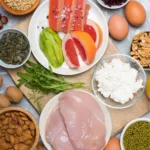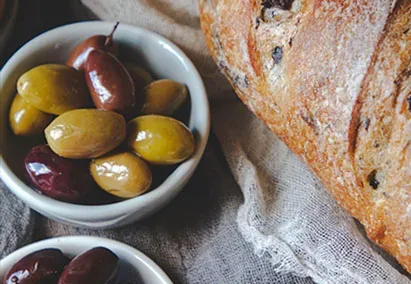Which fruits should you eat during pregnancy?

Making healthful food choices is crucial for women when they are pregnant. Their diet will provide the fetus with the nutrients essential for growth and development.
Most people are aware that a healthful diet should include plenty of fruits, vegetables, whole grains, lean protein, and healthful fats. However, they may not realize that specific fruits are particularly beneficial during pregnancy.
In this article, we explain why it is important to eat fruit during pregnancy.
What are the benefits of eating fruit during pregnancy?
Eating a healthful, varied diet is particularly important during pregnancy as the right nutrients can help the fetus to develop and grow as it should.
In addition to supporting the growing baby, an increased intake of vitamins and minerals can help a pregnant woman keep her own body in the best condition possible.
The best fruits to eat during pregnancy
Snacking on fruit can be a great way to boost vitamin intake in addition to curbing sugar cravings.
1. Apricots
Apricots contain: vitamins A, C, and E, calcium, iron, potassium, beta carotene, phosphorus, silicon.
All of these nutrients help with the baby’s development and growth. Iron can prevent anemia and calcium helps bones and teeth grow strong.
2. Oranges
Oranges are an excellent source of: folate, vitamin C, water.
Oranges are great for keeping a person hydrated and healthy. Vitamin C can help prevent cell damage and assist with iron absorption. Folate can help prevent neural tube defects, which can cause brain and spinal cord abnormalities in a baby.
3. Mangoes
Mangoes are rich in vitamins A and C.
A baby born with vitamin A deficiency may have lower immunity and a higher risk of postnatal complications, such as respiratory infections.
4. Pears
Pears provide lots of the following nutrients: fiber, potassium, folate.
Getting plenty of fiber in a pregnancy diet can help ease constipation, a common pregnancy symptom. Potassium can benefit heart health for both the woman and baby.
5. Pomegranates
Pomegranates can provide pregnant women with plenty of: vitamin K, calcium, folate, iron, protein, fiber.
Nutrient-dense pomegranates are also a good source of energy, and their high iron content helps prevent iron-deficiency. Research suggests that drinking pomegranate juice may help to decrease the risk of injury to the placenta.
6. Avocados
Avocados are an excellent source of: vitamins C, E, and K, monounsaturated fatty acids, fiber, B vitamins, potassium, copper.
Avocados contain healthful fats that provide energy and boost the cells responsible for building the skin and brain tissues of the developing baby. The potassium in avocados can provide relief from leg cramps.
7. Bananas
Bananas contain high levels of: vitamin C, potassium, , vitamin B-6, fiber.
The high fiber content of bananas can help with pregnancy-related constipation, and there is some evidence to suggest that vitamin B-6 can help relieve nausea and vomiting in early pregnancy.
8. Grapes
Eating plenty of grapes can boost people’s intake of: vitamins C and K, folate, antioxidants, fiber, organic acids, pectin.
The nutrients in grapes can help to aid the biological changes that occur during pregnancy. They contain immune-boosting antioxidants, which also help prevent infections.
9. Berries
Berries are a good source of: vitamin C, healthy carbohydrates, antioxidants, fiber.
Berries also contain lots of water, so they are an excellent source of hydration. Vitamin C helps with iron absorption and boosts the body’s immune system.
10. Apples
Apples are packed with nutrients to help a growing fetus, including: vitamins A and C, fiber, potassium.
One study found that eating apples while pregnant may reduce the likelihood of the baby developing asthma and allergies over time.
How much fruit should someone eat during pregnancy?
The advice for pregnant women is to eat at least five portions of fresh fruit and vegetables each day and to vary these as much as possible. Fruit can be fresh, frozen, or dried.
As a general rule, a serving of fruit is:
- one piece of fruit, for fruits that are larger than the size of a tennis ball.
- one cup of chopped fruit.
Sources: Medical News Today
Recent Posts
Related Articles
20-Minute Ab and Core Workout for Moms
If you’re a mother and you want to work on your abdominal...
August 7, 2023How to motivate your kid to be physically active
Like adults, kids need to be physically active to stay healthy. By...
June 19, 2023Tips for dealing with pregnancy cravings
Because hormone levels shifting significantly during pregnancy impacts your sense of smell...
June 19, 2023Pregnancy symptoms in the first trimester
The first trimester is the earliest phase of pregnancy. It starts on...
June 19, 2023

























Leave a comment